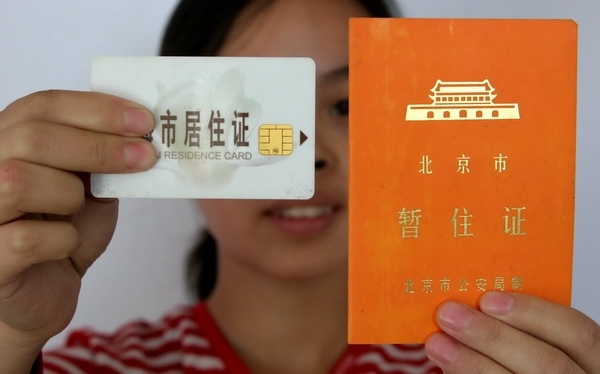


By Xie Liang (谢良), Li Yuanyuan (李媛媛), Wang Mengqin (王梦芹)
Nation, page 13
Issue No. 563
April 2, 2012
Translated by Song Chunling
Original article: [Chinese]
Since he moved to Beijing from Shandong in 2003, Ding Zhaowei (丁兆伟) has made a successful career and leads a comfortable life. Now, his greatest wish is that his four-year-old son should eventually be able to sit his university entrance exam in the capital.
Current regulations force high school students to sit the exam in the place where they are officially registered under the country's vast household registration system.
"He was born in Beijing and he pretty much speaks like a Beijinger," said Ding, who has just been recommended to serve as the deputy head of a "New Resident Mutual Assistance Center" (新居民互助服务站) in the Laoshan subdistrict of Beijing's Shijingshan district.
This center was founded in August 2009 as part of a pilot scheme to encourage mutual assistance and grass-roots organization among non-Beijing residents.
Beijing officials have started implementing a "residence permit system" (居留证制度) to replace the existing system of temporary resident permits (暂住证) and household registration, or hukou, promising that the changes will allow the migrant population to become eligible for some of the services that residents enjoy.
In Shijingshan District, there are already 188 such centers providing services to 156,000 new-comers, three quarters of the district's migrant population.
The migrants receive a smartcard that gives them access to eight free services including medicine, employment, family planning, education for their children, professional training and legal assistance.
However there are several problems with the system.
For starters, there are no dedicated funds and migrants aren't issued with identification documents, said Zhang Yongqing (张永清) an official in the city's Pingguoyuan subdistrict.
In addition, many of the migrants who could potentially benefit from the new system are wary of dealing with the volunteers who operate it. Many of them are unsure of their legal status and are afraid that they could be sent back or punished for violating the regulations.
According to Professor Lu Jiehua (陆杰华) from Peking University, as these mutual assistance centers are only a supplement to the new system, they're often set-up differently in each region.
Lu also said that Beijing's model "will serve as a blueprint for other regions in China."
In introducing the new scheme, the city government will have to deal with the challenge of protecting the rights of the migrants who have already settled in Beijing without encouraging new migrants to move to the city.
Ding just hopes that he'll be able to feel like a Beijinger, "We want to have a sense of belonging," he said.
Timeline: Four Years in the life of the resident permit system
Related stories: August 2008 May 2010 May 2011
Fact Box - Residency Cards
The temporary residence permit system (暂住制度) is used in mainland China when a person registered in one city or region wants to live and work in another area of the country.
Officially, all internal migrants need to apply for a temporary residence permit (暂住证) before they are allowed to reside legally in any place that has implemented such a system, otherwise they will be fined or sent back.
The system was initiated in Shenzhen to manage the large number of migrant workers and was later adopted in many cities throughout the country, including Beijing, Shanghai and Chongqing.
Shenzhen began moves to replace the system in 2007 when it decided to introduce a residence permit system (居住证制度).
As part of the reform of China's household registration system, the residence permit system has already been adopted in eleven cities including Shenzhen, Shanghai and Dalian.

